My truck is exceptional, not only because my entire life is in it and everything I own, but because it just keeps running. Of course, I do my best to take care of it; but it takes far better care of me. I admit that my mind still runs along gender lines when it comes to things automotive, which means there are little things I forget to do. I came close to running the truck completely out of oil once, but it survived; and I am far, far safer in this vehicle, having been in a few accidents with it, than in anything I have ever previously driven, mostly sports models and sub-compacts.
In a recent parking-lot incident, a young woman backed into my truck, and, just for fun, I thought I might go on a rant about how she was going to have to fix the whole thing, including a paint job, starting with an emphatic, exasperated, "Just look what you did to my truck!" But she already looked nervous, and I didn't think she would get the joke. So, as she got out of her car and approached me, I told her not to worry, that she couldn't possibly hurt my truck, which is true: it showed no sign at all of being hit. She was relieved, but her poor car had a ragged-looking spot near the left tail light.
Except that the original orange paint and the yellow racing stripe are badly faded and cracked everywhere and rust has set in, and the white, fiberglass camper shell on the back is deteriorated, the appearance of my truck is fairly normal. Things appear to be intact on the driver's side. However, the passenger side of my vehicle tells the story of someone who seems never to have learned to drive, at least, nothing as big as the Ford F-150. Though, now, after nearly a year with my truck, I could drive an elephant in New Delhi.
Near the right-side front, where the metal logo, F-150 is displayed, the letter F and the hyphen are broken off and the number, 150, sags between the 5 and the 0, giving the impression that it was, once, a great truck. There are several long dents that run along the right door all the way back to various end points just ahead of the rear wheel. Some sport the color of the object I hit, though, of course, I have no idea what that thing was, nor where.
There is no mirror on the passenger side of my truck: it was shaved off clean, bolts and all, passing a City bus. I was trying to maneuver through traffic between a line of cars and a bus picking up passengers on my right. I had plenty of room and came up alongside the bus, seeming to pass with ease. But, then, there was a horrific, metallic screech.
Like most big trucks, the Ford F-150's side mirrors are mounted on a metal arm that sticks out about a foot on each the side of the truck. That is a full two feet, and I had forgotten to account for it. At first, I just could not figure out what the matter was. I was looking at the bus driver, and he was looking at me, because something was getting badly crushed.
I turned the corner and found the nearest place to stop. The bus moved on. I got out and checked my truck, but I saw nothing unusual. It was not until later when I reflexively looked to my right to use the passenger-side mirror that I realized I did not have one. I got out again to take a look: the mirror had been sheered off, leaving only holes in the metal door, which I thought was a testament to a great American-made vehicle.
My truck once lived at the San Francisco Marina, and it shows the wear of constant exposure to fog and salt water. Where there was once paint, there are now rust blisters, and holes where the rust blisters popped. On the hood, there are as many holes as there are blisters. Often, while I am driving, pieces of rust will fly off. It is part of the charm.
Men take notice of my old truck, too. I have even been accused of using my truck to bait serious, big-toy, dog-owner types. But nothing could be further from the truth.
For safety and reliability, I could not have a better truck, and that is the point for a woman who is homeless. It is also roomy and has a bench seat, which makes it possible for one to stretch out and get a good night's rest. Furthermore, I own it outright, having paid only $700 for it. The problem, really, is age. My truck is 35 years old, and some parts eventually wear out.
The F-150 has needed a few repairs, and, in truth, the "Middle Eastern" garage owns a 90% interest in it by now. The bills for the brake job and new tires were hefty, and I am still paying them down; but the real story here is how I managed to find a place to have my truck repaired that would not demand immediate payment and would allow me to run a tab.
I was driving around doing my usual chores when the brakes went out last summer. Luckily, there was room to pull over and allow the truck to roll until it stopped. I was in a real pickle: I was going to need an expensive repair, which was obvious; I did not have the money for an expensive repair; and I was going to be without a place to sleep overnight. In such a circumstance, I become prayerful. I set my mind on being in the moment and letting go. I take a deep breath and relax my muscles. I thank the universe for my cell phone and an AAA membership.
Triple A sent out a tow truck driven by a young, heavy-set, pierced black man whose friendliness was relieving. Once John had winched up my truck, he wanted to know where I wanted it taken. Well, I didn't know, I explained and, moreover, though I worked, I had no money to pay for a major repair, at least, not in full at the time of service. Oh, he knew just where to take my truck, and that was to his own mechanic at the shop that takes care of people like me, or us. And that is how I ended up at the Middle Eastern garage where I do all my automotive business.
John introduced me to everyone: Sal, the manager, a Palestinian; Gus, the cashier, an Iraqi picked up during Desert Storm; Ken, one of the mechanics, a Jordanian; and Eric, the other mechanic, a Mexican-American, who fits right in and seems to understand the Arabic dialect spoken around him. Gus told me they would take care of me, and they have.
My brakes were fixed in less than twenty-four hours, and I paid what I had, according to the arrangement Gus made for me. He showed me where my paperwork would be kept, in the wooden file box that hangs on Sal's office door, in the "poor" section. Gus delighted in my poverty, as it seemed to give us something in common. In fact, he thinks in terms of the worldwide poor versus the worldwide rich. Gus spent many years between evading arrest and being jailed by the Saddam Hussein regime, but somehow wound up in the Iraqi army and the invasion of Kuwait.
He is now the property of the U.S. Army.
Gus is quite humorous and has an incredible facility for languages, traits which did not go unnoticed by the Americans who have used him ever since. He was called up just a few weeks ago and is going home, that is, to Iraq, but he says he will be undercover. Sal and friends are not sure what the story really is. They figure he is a dead man. Someone of one faction or another will not think he is funny.
One day, I pulled into the station and up to a pump for gas while Sal and Gus just stared and shook their heads at me.
"What?"
"We are your family. We take care of you."
Gus was speaking in a low tone of voice, reproaching me with an index finger. Sal's face was hard and unmoving. He did not look directly at me. Because I must have looked puzzled, Gus spoke up to explain that Sal had seen me pumping gas at the Valero. Then Sal, obviously offended, asked why I bought gas there. I explained that the Valero was sometimes closer, especially on days when I visited the post office to pick up mail or stopped by the bank.
"Oh," Sal said, seeming to understand.
"I'm sorry."
"You're forgiven," Sal stated in a tone that assumed the authority to ascribe sins and take them away. "Anyway, I do not make money selling gasoline, and my gas and Valero's are about the same."
"Just don't let it happen again," Gus added.
Once I finished pumping gas and got back in the truck, I realized how serious these men were in their insistence on being family to me. I was touched, even though it is tempting to regard such sentiments as pure schmaltz, or worse, deceit; but there is nothing about their cultures that would provide a motive for anything disingenuous. Fine, I thought, I will let them take care of me.
Since then, it is my habit to do all my automotive business at the Middle Eastern garage.
How to Unclog a Toilet at Home
-
Your heart pounds as the water level rises past the usual mark. That slow
gurgle turns into a silent alarm—you’ve […]





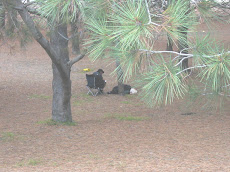


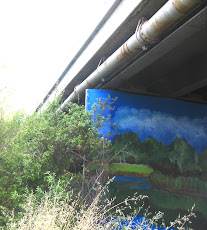
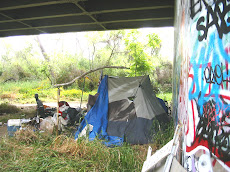







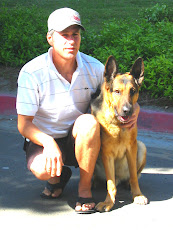
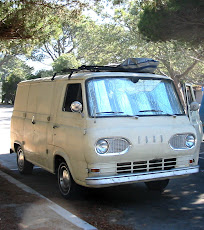
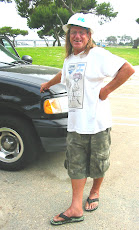









No comments:
Post a Comment